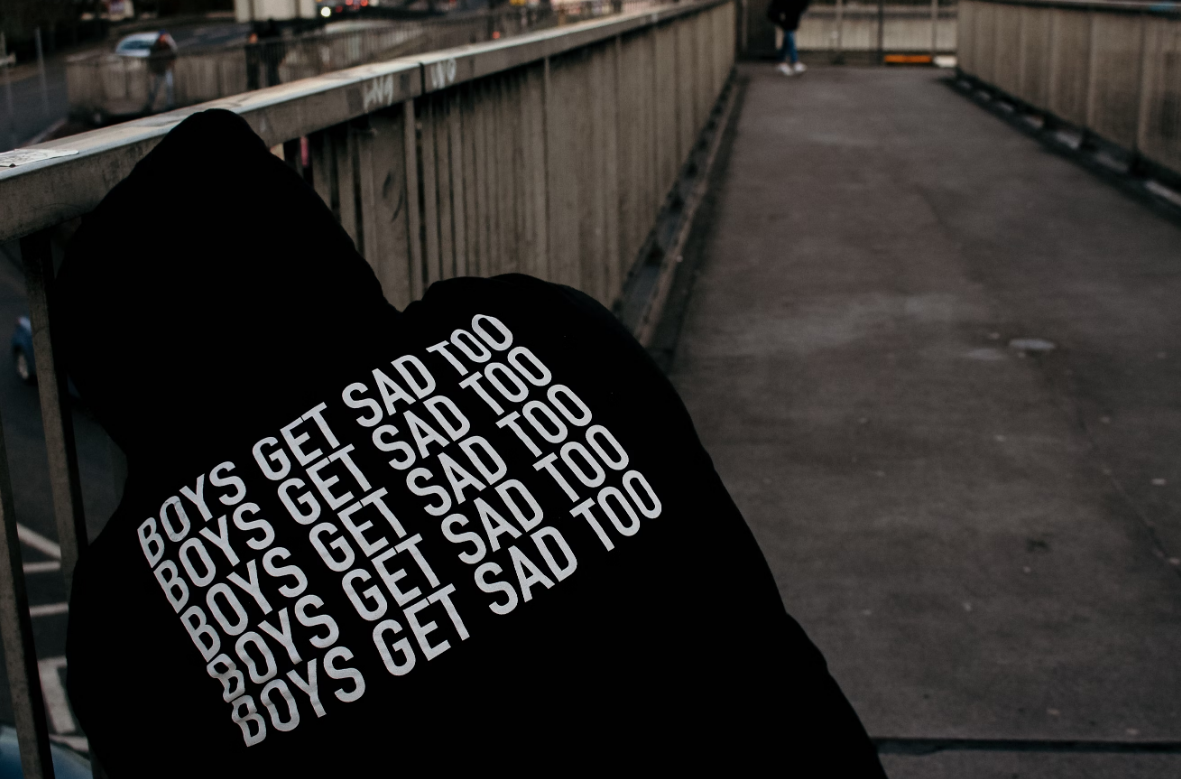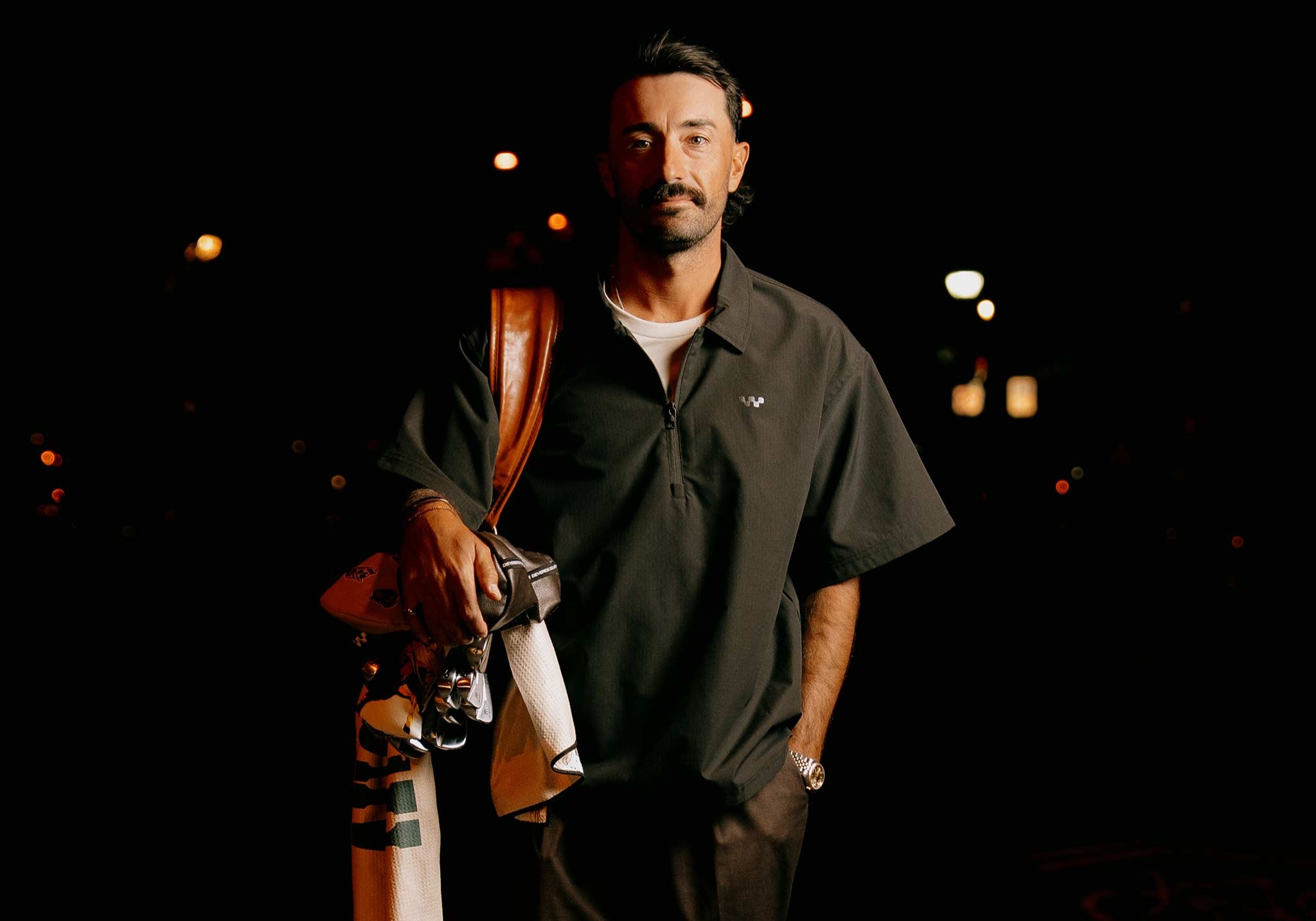Breaking the ice for men’s mental health
Dec 27, 2025Why Men’s Mental Health is the Career Choice for the Future
- Sep 7, 2024
- 0 Comments
319

I recently had new business cards printed. They read: “Jed Diamond, PhD—Helping men and the women who love them since 1969.” My career helping men began on November 21, 1969 when I held my newborn son in my arms and made a vow to be a different kind of father than my father was able to be for me and do everything I could to help create a world where fathers were fully healed and involved with their families throughout their lives.
Although I had worked in the mental health field for many years and written fifteen books, I only recently was able to tell the whole story about my father’s mental illness and the healing journey that saved his life. In my 16th book, My Distant Dad: Healing the Family Father Wound, I quoted men’s health advocate Roland Warren who said,
“Kids have a hole in their soul in the shape of their dad. And if a father is unwilling or unable to fill that hole, it can leave a wound that is not easily healed.”
It took me a long time to realize I was a kid with a hole in his soul and that I had tried to fill it by making money and becoming a success in my profession but had avoided the real work of addressing my father wound. I came to see that my father wound was really a family wound that impacted multiple generations. I wanted to be sure I didn’t pass on the wounding to my own children and grandchildren.
I learned that the wound is there for many who grew up as I did with a mother who did her best to raise me after my father had left when I was five years old. But many experience the wounding in other ways.
“A father may be physically present, but absent in spirit,”
says psychologist James Hollis.
“His absence may be literal through death, divorce, or dysfunction, but more often it is a symbolic absence through silence and the inability to transmit what he also may not have acquired.”
I was told that my father had “a nervous breakdown” and was committed to the state mental hospital for treatment. It was only years later when I found the journals my father had kept during the years leading up to his hospitalization that I got a glimpse into his mind and what led to the despair that overwhelmed him. Here are a few excerpts:
July 3:
“Oh, Christ, if I can only give my son a decent education—a college decree with a love for books, a love for people, good, solid knowledge. No guidance was given to me. I slogged and slobbered and blundered through two-thirds of my life.”
July 24:
“My dear wife, my beautiful son, I love you both so much, but how do I get the bread to support you? The seed of despair is part of my heritage. It lies sterile for months and then it gnaws until its bitter fruit chokes my throat and swells in me like a large goiter blacking out room for hopes, dreams, joy, and life itself.”
August 8:
“Sunday morning, my humanness has fled, my sense of comedy has gone down the drain. I’m tired, hopelessly tired, surrounded by an immense brick wall, a blood-spattered brick world, splattered with my blood, with the blood of my head where I senselessly banged to find an opening, to find one loose brick, so I could feel the cool breeze and could stick out my hand and pluck a handful of wheat, but this brick wall is impregnable, not an ounce of mortar loosens, not a brick gives.”
December 8:
“Your flesh crawls, your scalp wrinkles when you look around and see good writers, established writers, writers with credits a block long, unable to sell, unable to find work, Yes, it’s enough to make anyone, blanch, turn pale and sicken.”
February 24:
“Faster, faster, faster, I walk. I plug away looking for work, anything to support my family. I try, try, try, try, try. I always try and never stop.”
June 12:
“A hundred failures, an endless number of failures, until now, my confidence, my hope, my belief in myself, has run completely out. Middle aged, I stand and gaze ahead, numb, confused, and desperately worried.
“All around me I see the young in spirit, the young in heart, with ten times my confidence, twice my youth, ten times my fervor, twice my education. I see them all, a whole army of them, battering at the same doors I’m battering, trying in the same field I’m trying. Yes, on a Sunday morning in June, my hope and my life stream are both running desperately low, so low, so stagnant, that I hold my breath in fear, believing that the dark, blank curtain is about to descend.”
I grew up wondering what happened to my father and when it would happen to me. I did go to college and graduated with honors as my father hoped I would and later received a four year, full-tuition, fellowship to U.C. San Francisco Medical School. I hoped to become a psychiatrist and I naively thought that if I could get educated enough I would learn the magic that would protect me from whatever disease had infected my father.
When I arrived at medical school in 1965 with dreams of becoming a healer, it was clear that this was mostly a place for white men. There were few minorities and even fewer women. Before classes began the scholarship students were wined and dined at a faculty home in elegant Marin County across the Golden Gate Bridge from San Francisco. The message soon became clear: You are the elite and chosen ones. Follow the rules, do what you are told, don’t rock the boat, and this will all be yours someday.
Coming from a working-class family whose parents were radical politically and active socially, this was the wrong message for me. I also realized that what I was learning in medical school offered very little about the causes and treatment for what ailed my father. I decided to leave and transfer to U.C. Berkeley’s School of Social Welfare.
However, before I could leave I had to see a psychiatrist. From their perspective, anyone who wanted to leave medical school, give up a full-ride scholarship, and go into social work, must be crazy. I left anyway. You learn the rest of the story in my book, My Distant Dad, and in my on-line course, “Healing the Family Father Wound.”
Leaving medical school and going into social work not only seemed crazy at the time to the psychiatrist I was forced to see, but also to my friends and family who were looking forward to having “a docta in the family.” But it was the right choice for me. It has offered a career that has been meaningful and fulfilling in all the ways that count. I have also made a great living doing what I love to do.
In 2021, I was sent a review copy of a new book, Of Boys and Men: Why the Modern Male is Struggling, Why It Matters, and What to Do About It, who was at the time a senior fellow at the Brookings Institution. I interviewed Reeves and his experiences mirrored my own.
“When I was thirteen, my father lost his job,”
he said.
“He was hardly alone: this was in the early 1980s in the UK, and he worked in manufacturing. It took months for him to find work. Each morning he would appear at the breakfast table, freshly showered, in a shirt and tie. Then he would go to his desk to check for new job postings and send out résumés.
One day I asked him, ‘Why do you still dress so smartly when you don’t have a job to go to?’ He looked at me and said, ‘I do still have a job. My job is to get another job so I can take care of all of you.’ I’ll never forget that moment. I saw, for the first time, that Dad’s job wasn’t just that mysterious thing he went off to do every morning. It was a manifestation of the relationship of care between him and the rest of the family.”
In Of Boys and Men, Reeves shares ideas that parallel my understanding about the nature of the problem we face.
“It became clear to me that the problem of boys and men are structural in nature, rather than individual; but are rarely treated as such. The problem with men is typically framed as a problem of men. It is men who must be fixed, one man or boy at a time.”
Reeves goes on to say,
“Men are struggling in the labor market because of an economic shift away from traditionally male jobs. And fathers are dislocated because the cultural role of family provider has been hollowed out. The male malaise is not the result of a mass psychological breakdown, but of deep structural challenges.”
Why You Might Want To Consider Men’s Mental Health As A Career Choice.
Reeves recently founded the American Institute for Boys and Men (AIBM) to inform policy and public dialogue with non-partisan research so that boys and men from all backgrounds can lead healthy, happy, and meaningful lives. He offers the following information about the health needs of boys and men. In January 2024, AIBM issued a report titled “Where Are the Men? Male Representation in Social Work and Psychology,” detailing the following information:
- Mental health needs are pervasive among men, yet the share of men meeting those needs in mental health professions is low and declining.
- Boys and men are currently much less likely to receive treatment for mental health conditions. In 2022, 27% of women reported receiving mental health treatment in the previous 12 months compared to only 16% of men.
- There is strong evidence that socialization and norms contribute to men’s reluctance to seek out the care they may need.
- At a time when suicide among men is at an all-time high, the share of men working in mental health-related professions has recently reached all-time lows.
- In 1968, men made up approximately 38% of the social work workforce, compared to 18% in 2023. The psychology workforce has seen a particularly large drop in the share of men, falling from 68% in 1968 to 20% today.
- This trend appears set to continue. In 2023, the mean age of male psychologists was 60, compared to a mean age of 47 for female psychologists.
- If the downward trend in male representation were to continue at the same average rate as since 1968, the psychology profession would have no men at all by 2046, and the social work profession would be male free by 2070. Obviously, these are simple extrapolations rather than predictions, but serve to illustrate the sharpness of the decline.
- The decline is not receiving much policy attention, especially by comparison to the justified focus on the share of women in STEM and other historically male-dominated occupations.
Chapter 11 of Reeves book Of Boys and Men is titled, “Men Can Heal: Getting Men into the Jobs of the Future.” He says,
“The gender desegregation of the labor market has been almost entirely one way. In particular, the share of men in HEAL occupations—remains stubbornly low.”
He quotes Gloria Steinem who said,
“We can do anything that men can do.”
Reeves goes on to say,
“But men are NOT saying ‘We can do anything that women can do.’ More men can certainly do HEAL jobs. And given the trends in the labor market, they must.”
For years I have been a leader in the emerging field of gender-specific healthcare and have offered two previous trainings for those who would like to enter this emerging field. I am now developing a new training program which I will be offering in the coming months. If you would like more information, you can send me an email to [email protected] and put “Men’s Mental Health Training” in the subject line.
If you would like to learn more about Richard Reeves work, you can contact him through the American Institute for Boys and Men.
If you would like to receive my free weekly newsletter with articles you can use to improve your mental, emotional, and relational health, you can do so here.
Publisher: Source link







